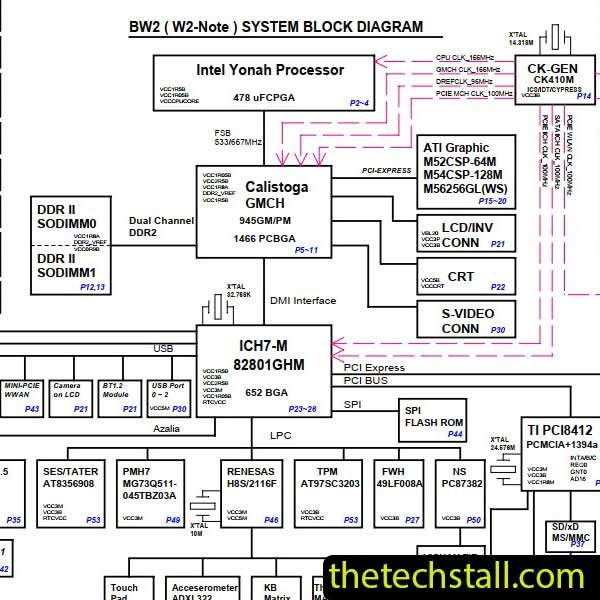
If you have experience in repairing electronic devices, then you know that schematic diagrams are essential tools for troubleshooting and repairing electronic circuits. A schematic diagram is a graphical representation of an electronic circuit that shows the flow of electrical current and the various components of the circuit. In this article, we will discuss how to use a schematic diagram to repair a faulty laptop motherboard.
A schematic diagram is a graphical representation of an electronic circuit. It is a way of visualizing the flow of electrical current through a circuit and the various components of the circuit. Schematic diagrams are used to troubleshoot and repair electronic devices. They are also used to design new electronic circuits.
A laptop motherboard is the main circuit board in a laptop computer. It contains the CPU, memory, and other components that are essential for the computer to function. The laptop motherboard is a complex electronic circuit that can be difficult to troubleshoot and repair without a schematic diagram.
Before you can use a schematic diagram to repair a faulty laptop motherboard, you need to obtain the schematic diagram. You can obtain the schematic diagram from the manufacturer of the laptop or from third-party sources online. It is important to obtain the correct schematic diagram for your laptop model.
Once you have the schematic diagram, you can use it to identify the faulty component in the laptop motherboard. You will need to use a multimeter to measure the voltage and resistance of the components in the circuit. By comparing the measurements to the values in the schematic diagram, you can identify the faulty component.
Once you have identified the faulty component, you will need to remove it from the laptop motherboard and replace it with a new component. This can be a delicate process, and it is important to follow the instructions in the schematic diagram carefully. Make sure to use the correct tools and to work in a clean and static-free environment.
After you have replaced the faulty component, you will need to test the repaired laptop motherboard. Connect the laptop to a power source and turn it on. Check to see if the laptop boots up and functions properly. If there are still problems, you may need to repeat the troubleshooting process and use the schematic diagram to identify and replace other faulty components.
Lenovo ThinkPad Z61 BW2 Rev 3B Laptop Motherboard Schematic Diagram can be downloaded for free from the link below, without any registration. Lenovo ThinkPad Z61 Laptop Motherboard Schematic Diagram in PDF format. This diagram can be opened using any PDF reader software.
Using schematic diagrams in laptop motherboard repairing requires careful attention and skill. Technicians should take proper precautions to avoid damaging the motherboard or causing further faults. They should use high-quality schematics, wear anti-static equipment, disconnect the power supply, follow manufacturer guidelines, avoid using excessive heat, double-check connections, and test the motherboard thoroughly. By taking these precautions, technicians can ensure that they repair the motherboard correctly and avoid further damage or malfunction.
Q: What is a schematic diagram?
A schematic diagram is a graphical representation of an electronic circuit that shows the flow of electrical current and the various components of the circuit.
Q: Why is a schematic diagram important for repairing a laptop motherboard?
A schematic diagram is important for repairing a laptop motherboard because it allows you to identify the faulty component and replace it with a new component.
Q: Where can I obtain a schematic diagram for my laptop model?
You can obtain a schematic diagram for your laptop model from the manufacturer of the laptop or from third-party sources online.
Share with friends
thetechstall.com would like to share with you all the resources you need to repair desktop and laptop motherboards for free.
Developed By: Ibrahim Hossen